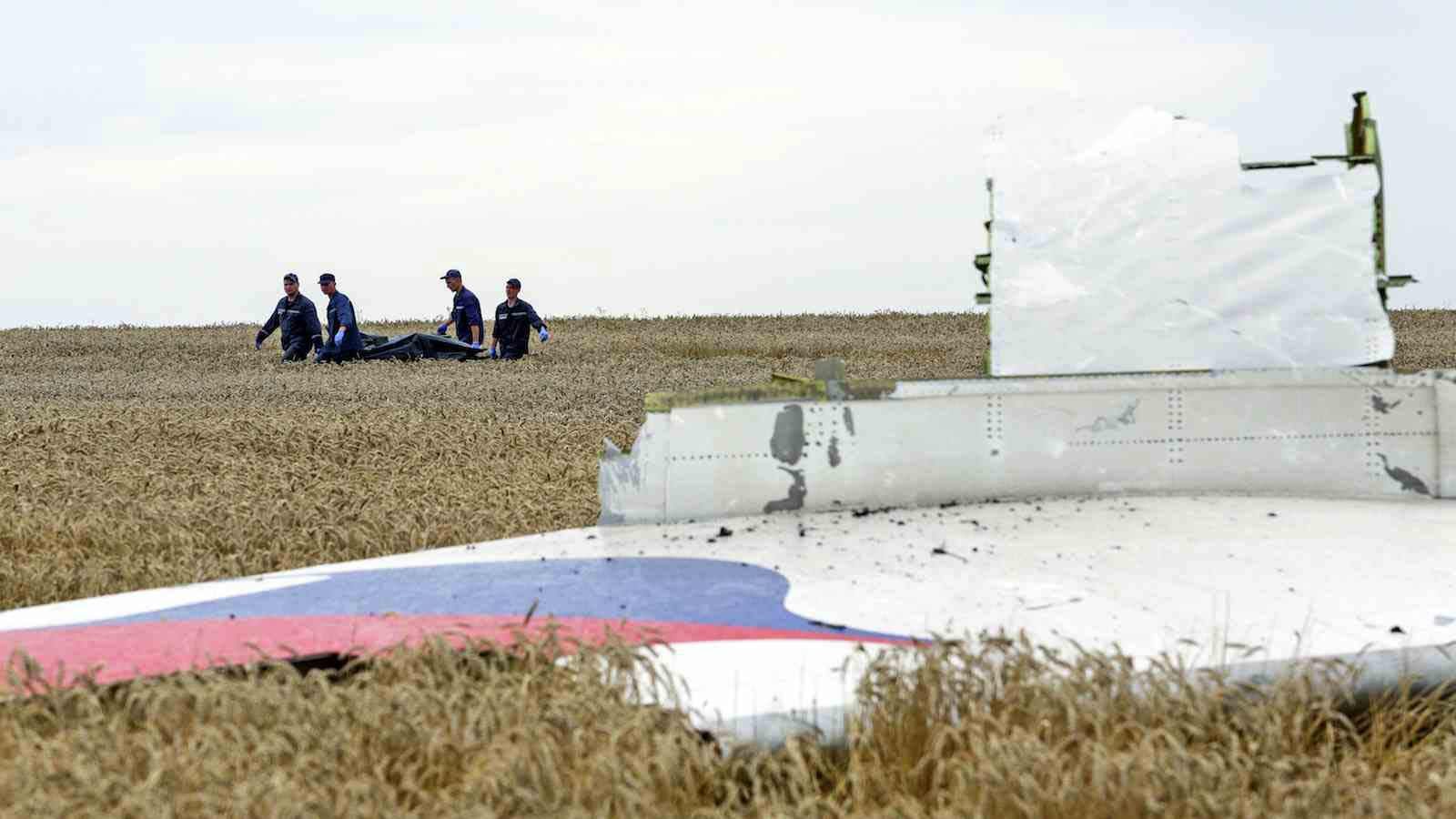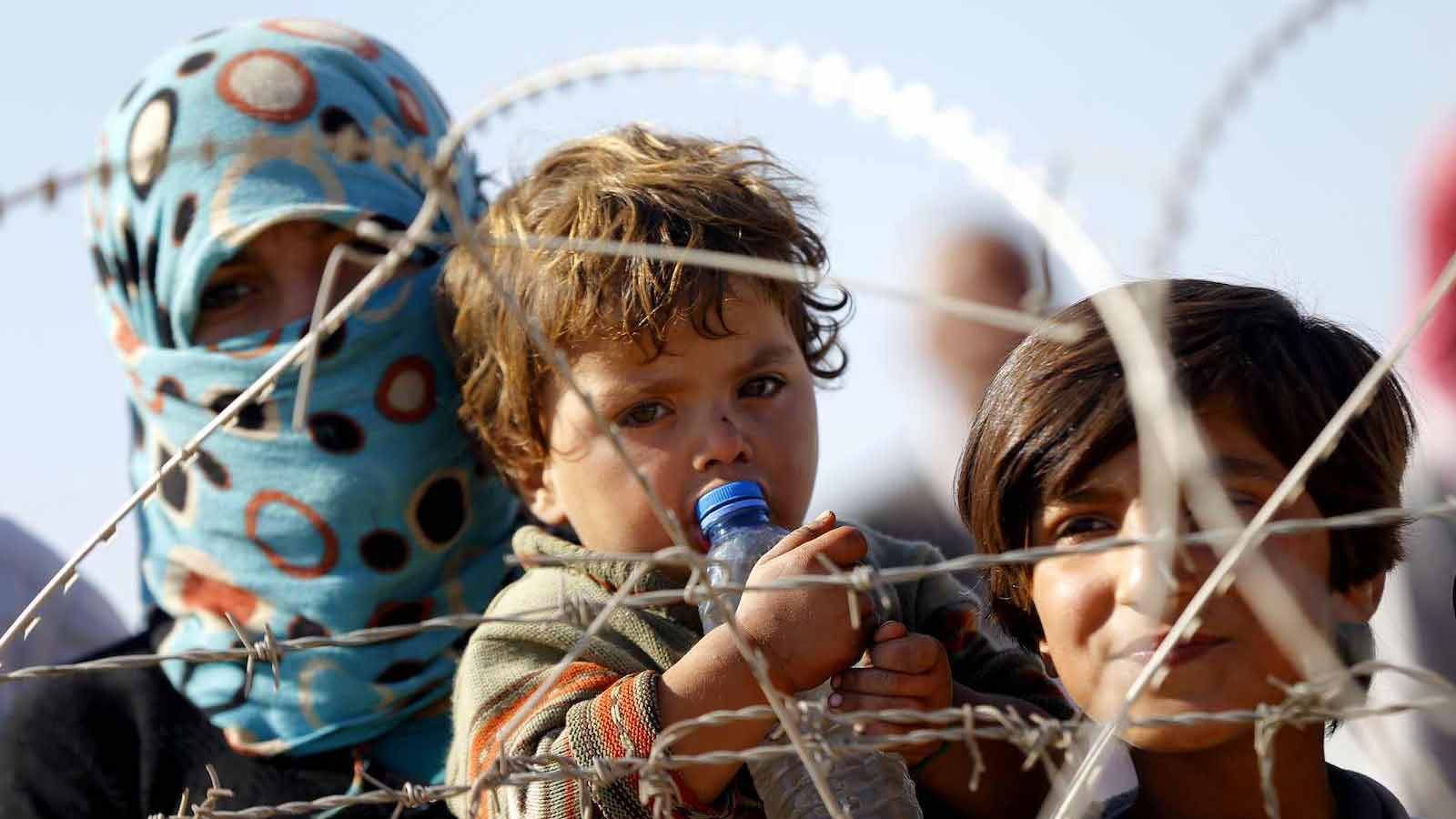SUMMARY
This is AI generated summarization, which may have errors. For context, always refer to the full article.

2014: The world’s top stories
“It was the best of times, it was the worst of times.” The opening lines of A Tale of Two Cities could very well describe 2014: while some experts say we are living in one of the most peaceful eras in history, we’ve also seen, within a span of 12 months, wars, countless acts of terror, disasters, crises, and other upheavals. And in this increasingly interconnected world, there are no more “isolated” events to speak of: each issue or story has made a mark on the lives of people around the world. Here are the stories and issues that made the headlines – and made a huge impact on people’s lives – across the world in 2014.
With reports from Agence France-Presse
Photos by Agence France-Presse and the European Pressphoto Agency
A Palestinian stands on top of the ruins of his house in Al-Shejaiya neighborhood, in the east of Gaza City, September 24, 2014. Mohammed Saber/EPA

Aviation
From disappearing planes to several major mishaps, 2014 was a wake-up call for aviation safety and security. 2014’s events triggered the first major worldwide reviews of aviation precautions in years and gave aerophobes a new reason to tense up on take-off. Despite this, ironically, the year continued a long-term trend of ever improving air safety, and passenger traffic overall remained steady. – AFP
People carry a stretcher with a body bag past debris of Malaysia Airlines flight MH17, which crashed while flying over eastern Ukraine, at the crash site near Donetsk, Ukraine, July 19, 2014. Anastacia Vlasova/EPA

North Korea
North Korea continues to isolate itself from the rest of the world, despite increasing pressure over its human rights record and its nuclear arsenal. News about chilling testimonies from defectors and the release of American prisoners were mixed with regular warnings to its neighbor in the south and (non-)updates over the stalled nuclear talks. And bizarre news continued throughout the year, courtesy of Kim Jong-un: from his apparent disappearance to the Sony Pictures hackings.
Workers remove a poster-banner for “The Interview” from a billboard in Hollywood, California, December 18, 2014 a day after Sony announced was canceling the movie’s Christmas release due to a terrorist threat. Robyn Beck/AFP

Syria, year 3
Three years on, Syria continues to be battered by a civil war, compounded by the ISIS problem. The Bashar al-Assad regime isn’t seen to budge anytime soon, as rebels continue to hold pockets of resistance across the nation. As the battles continue, the exodus of Syrians continue – the refugees now number 3.2 million, and humanitarian organizations and the UN are appealing for more help.
Syrian refugees wait behind barbed wire near the Turkish-Syrian border after fleeing Syria, near Sanliurfa, Turkey, September 23, 2014. Sedat Suna/EPA

Crisis in Central Africa
Late in 2013, bloody clashes between Central African Republic’s Christian majority and Muslim minority escalated into full-scale civil war. As the crisis grew, former colonial power France launched a military intervention. Twelve months after the start of Operation Sangaris, massacres have ceased but the fragile nation is still reeling form unrest. Several thousand people were killed in the tit-for-tat attacks, which plunged the population of 4.8 million into an unprecedented humanitarian crisis. – AFP
A file photo taken on April 16, 2014 shows people watching a convoy of French troops of the Sangaris forces driving between Grimari and Bambari, Central African Republic. Miguel Medina/AFP

Civil rights in the US
The case files are piling up – young black men killed by white police officers who later go uncharged – as are questions about what the US government will do about it. Names like Michael Brown, Tamir Rice, and Eric Garner are now chapters in the long saga of tense and often violent relations between America’s black community and mainly white police forces. – AFP
Demonstrators face off with the police in Ferguson, Missouri, USA, November 24, 2014, after the Grand Jury decision not to indict police officer Darren Wilson in shooting death of Michael Brow. Larry W. Smith/EPA

Hong Kong: #OccupyCentral
A city fights for free leadership elections in 2017 – the biggest challenge to China’s authority over the semi-autonomous region since it was handed over by the United Kingdom in 1997. It ignites a fierce debate over Hong Kong’s future – and analysts say the protests have divided the city into two. – AFP
Pro-democracy protesters hold up their mobile phones as lights in front of the Hong Kong government offices on day three of the mass civil disobedience campaign Occupy Central in, Hong Kong, China, September 30, 2014. Alex Hofford/EPA

Ebola
Ebola erupted into a global emergency in 2014. The disease has killed more than 6,500 people, spilling from Guinea into its west African neighbors before causing the first-ever domestic infections outside of Africa – in the United States and in Spain. As governments closed borders and screened air passengers, indifference towards the epidemic evaporated and pharmaceutical companies began a race to develop treatments, vaccines and faster, mobile diagnostic tests. – AFP
People look on as a woman reacts after her husband is suspected of dying from the Ebola virus, in the Liberian capital Monrovia, on October 4, 2014. Pascal Guyot/AFP

South Korea: Sewol sinking
The Sewol ferry sank off the southern coast in April with the loss of more than 300 lives, most of them teenagers on a high-school trip. The tragedy, blamed by many on regulatory failings and official incompetence, plunged the entire nation into a lengthy period of mourning. A court later found the captain not guilty of murder, but was still sentenced for dereliction of duty. – AFP
South Korean pedestrians walk past yellow ribbons for victims of the Sewol ferry disaster at city hall plaza in Seoul on October 15, 2014. Jung Yeon-je/AFP

Boko Haram
The abduction of 276 young girls from their dormitories in Chibok marked the start of an upsurge in violence brought by the extremist Boko Haram group. With chilling regularity, parts of Nigeria were wracked by bomb blasts, razing of towns, and numerous other atrocities. Since 2009, insurgency has left more than 13,000 dead and 1.5 million displaced. – AFP
A Nigerian woman holds a placard in front of the Nigerian High Commission during a protest against the kidnapping of the Nigerian schoolgirls by Islamist militant group Boko Haram, in Nairobi, Kenya, May 16, 2014. Dai Kurokawa/EPA

US midterm elections
Republicans stormed to victory in the US midterm elections, thumping rival Democrats to clinch control of both houses of Congress and assuring a fractious final two years of Barack Obama’s presidency. Riding a wave of frustration with Washington incumbents and the unpopular policies of the Obama administration, Republicans seized at least 7 seats from Senate Democrats to claim the majority in both chambers of Congress for the first time since 2006. – AFP
Ella Duane, 9, waits under the booth as her mother Laura Duane votes at the Broadway Baptist Church in Louisville, Kentucky, USA, November 04, 2014. Mark Lyons/EPA

Carnage in Peshawar
It was supposed to be a normal school day for students at a school in Peshawar, Pakistan, but a group of Taliban gunmen changed all that. The terrorists laid siege on the Army Public School in the city for 8 hours, and at the end, 149 people – majority children – lay dead, with hundreds others wounded. The incident shook a nation already used to terror attacks, outraged the rest of the world, and put the Pakistani government under new pressure to combat militancy. – AFP
A girl’s shoe lies on the floor in the bloodied ceremony hall at an army-run school a day after an attack by Taliban militants in Peshawar on December 17, 2014. Farooq Naeem/AFP

Ukraine
An ex-Soviet country struggled to move away from Russia’s orbit – but instead is drawn into a war that drives a big wedge between the West and Russia. The Maidan protests were the fuse that lit up one of the worst post-Cold War crises: Russia annexed Crimea; then pro-Russian separatists occupied a large swathe of Ukraine’s east. Eight months on, peace is still elusive – and more than 4,700 people have died in the conflict.
Smoke from exploding fireworks and fires billows into the night sky as Ukrainians gather on the Independence Square during continuing protest in Kiev, Ukraine, February 18, 2014. Igor Kovalenko/EPA
Add a comment
How does this make you feel?
There are no comments yet. Add your comment to start the conversation.